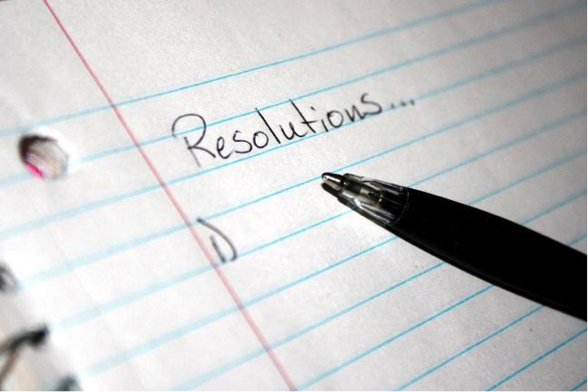How Effective Are New Year’s Resolutions?
The science behind those broken promises of good intentions

Photo by Chloe Lesson
Should we even bother to craft a list of our intentions for the New Year?
As the new year begins, we are reminded of the annual promises most of us make but never end up fulfilling. “This year I will clean my room more.” or, “This is the year I will read more often.” Well, by February 1st, your room is dirtier than ever and you can’t remember the last book you’ve read. Chances are, you’ve started out the year with an optimistic attitude on the endless possibilities that the New Year brings. But how many of us stick with our resolutions past the first month or two – or even the whole year? Very few. There may be scientific reasons why.
The whole idea of New Year’s resolutions come from people wanting an opportunity to reinvent themselves. With a new year, everyone wants to seize the opportunity for a fresh start, otherwise known as “The Fresh Start Effect”, otherwise known as creating unrealistic goals for your future self to meet. Eventually, this is met with the inevitable fact that not everything can be achieved in a year, which then transforms into something scientists call False Hope Syndrome.
Turns out, there’s actual evidence linking the physiological effect of New Year’s resolutions to actually making progress, but it’s the opposite of what you would expect. When you create a New Year’s resolution, you start to make a conscious effort to separate yourself from certain behaviors, ultimately causing yourself to think about it even more. For example, if a person was asked not to think about dinosaurs, there is a good chance they will have a greater urge to think about said dinosaur than if no one ever asked them about it in the first place. This is because the human brain chooses certain tasks out of habit. When you interrupt this habit, you are taking a subconscious action and turning it into a conscious effort, giving you no choice but to think about the exact thing you are trying not to think about. So, when constantly trying to change one’s behavior or habits, you are indirectly reversing the very thing you are trying to change! While confusing, it is proven to be true. A research done by the Statistic Brain Research Institute suggests that nearly 41% of Americans usually make New Year’s Resolutions, but only 9.2% feel they were successful in actually following through.
To improve your resolution results, it is important to make sure you are setting a goal for yourself that you will continue to be interested in throughout the year. In addition, MentalHealth.org suggests that when you share you goals with others, it is easier to follow through with a support system. So, how will you choose to take on 2018? Will you take on the challenge of a New Year’s resolution, or simply take it one step at a time? Because, although it may be difficult, no goal is completely impossible to achieve.

Grade 9
“My mission in life is not merely to survive, but to thrive; and to do so with some passion, some compassion, some humor, and some style”
~Maya...




